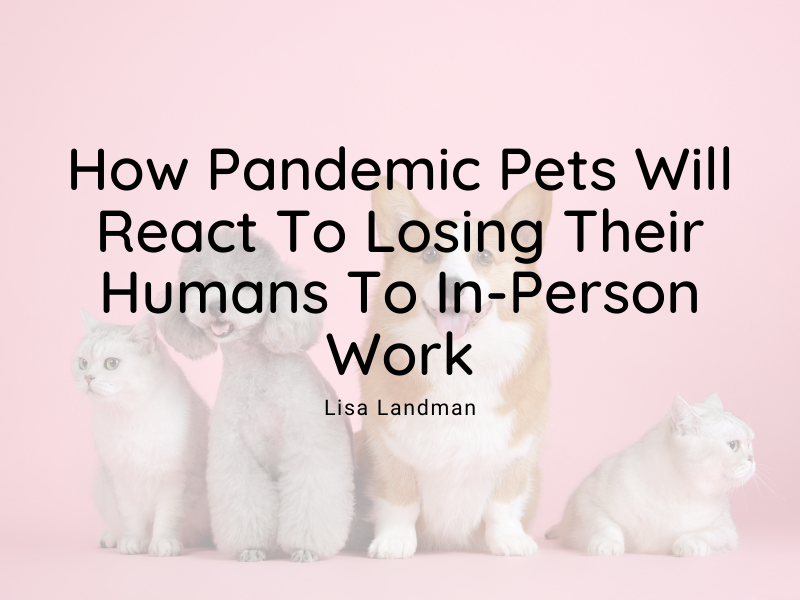The dramatic change happening inside the dog-human interaction has been one of the more recurrent topics of attention during the COVID-19 outbreak. Statistics show that over the last year and a half, dogs have been adopted in unprecedented numbers.
Dog homes and rescues have been cleared, with breeders having long lists of clients anticipating new deliveries to arrive. The dog-buying craze has been so widespread that the term “pandemic puppies” has been trending during the epidemic.
It is now evident why with the onset of the pandemic, dog ownership has become more popular. Those whose busy occupations could not allow them to own dogs before the pandemic were now able to settle and pet a dog.
While some used the opportunity to get a puppy despite the care and attention required, others preferred to adopt a grown dog from a shelter. Self-interest was a significant determinant in these choices. With human interaction restricted, people resorted to dogs for companionship and emotional support.
At first, the dogs were praised as heroes for a human population sinking into loneliness and depression. But recently, the dogs have demonstrated an unprecedented welfare crisis in different ways. The puppies that were once cute have now grown into unruly dogs.
Dog trainers have revealed that their clients have returned with complex problems with their dogs that they are seeking to address. Dog populations at shelters and rescue facilities are rising again as many realize that dog ownership is much more than what meets the eye.
One of the biggest welfare challenges on dogs is that they are expected to function as emotional support staff for humans. While there have been studies and debates on the ethics of using military, autism, and police dogs, there has been none on those being used as emotional companions.
The return of people to a more normal lifestyle is another issue for pandemic dogs. Many dogs have become used to being around humans nearly the whole day. Sooner or later, they will be expected to deal with long periods of loneliness. While dogs know how to handle being alone, pandemic dogs will need training to remember how to be alone because being around humans has made them forget.
Even though researchers are analyzing the epidemic’s impact on human-dog relations, it is essential to understand that challenges even before the pandemic and they should be addressed as well.

